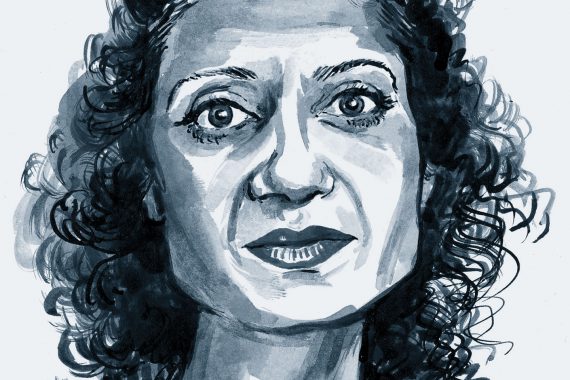Sometimes there is no substitute for face to face

The past few months have seen GPs vilified, for both not seeing patients face to face, and for being rooted in their old-fashioned ways and not moving with the times.
The ideal, of course, is somewhere in the middle. I have no doubt that robust health navigation by specially trained reception staff, combined with remote triage, is the only way to manage demand. But it is what happens after this remote triage that is crucial.
It may be that you can successfully complete a consultation by uploading an image or the use of video. Or you may need to lay your hands on a patient, so you bring them in. But there is another group of people for whom there is simply no substitute for a face-to-face consultation.
I am reminded of one such woman I was seeing just before lockdown restrictions came into force. Sophia (not her real name) is an educated woman from Pakistan, having completed a university degree there. Despite her freedom to study, her family was still rooted in its culture and tradition, and she was packed off to England to marry someone she had never met. She assumed the role so many in her position do – dutiful daughter in law, cook, cleaner and sex slave. She was repeatedly raped and physically assaulted by her husband, and the only place she could visit alone was the GP, for the headaches she presented with.
Very quickly, I assessed that Sophia had the desire to change her situation, but was not yet ready. I booked her a follow-up appointment, which was disrupted by lockdown, so this was changed to a phone call. I made many calls to her during lockdown and she was either not answering, or she couldn’t speak. I had given her a variety of numbers for support, but she hadn’t called any of them. She said things were better, and in a climate of avoiding all face-to-face contact, I accepted this.
But I was wrong, Things only got worse for Sophia and a few months ago she was housed in a women’s refuge. In hindsight, I could see that every consultation with her, and anyone else in her situation, should have been face to face. She was unable to open up to me over the phone, as there was always someone listening to her. I even had to text the number of the women’s refuge to her under the guise of an optician’s name.
My biggest concern about this pandemic becoming a way of life is that victims of domestic violence no longer have the safety net of coming to the GP practice for a face-to-face appointment.
These are people whose only unattended outing may be to see us, and we have removed this lifeline from them.
There is no doubt that domestic violence has increased since lockdown measures were introduced. I fear that if we don’t see these victims in person, we will be faced with a pandemic within a pandemic. And a pandemic that is disproportionately affecting young girls and women.
Sometimes there is no substitute for a face-to-face consultation.
Dr Shaba Nabi is a GP trainer in Bristol. Read more of Dr Nabi’s blogs online at pulsetoday.co.uk/nabi
Pulse July survey
Take our July 2025 survey to potentially win £1.000 worth of tokens

Related Articles
READERS' COMMENTS [2]
Please note, only GPs are permitted to add comments to articles












It isn’t just victims of domestic violence it is also people with mental health issues who do not want to be overheard by family or work colleagues.
Poignant. Further debate is needed at higher levels, as General Practice cannot functionally be the surrogate haven, omnipresent safety net and dumping pit for ALL of society’s and humanity’s dark and ractures. From housing, to work issues to drugs, schooling, immigration, trafficking, radicalisation, mental health, gambling, obesity, deprivation and abuse. That in itself is an abuse of broken primary medical staff, unfunded, lambasted and taken for granted.